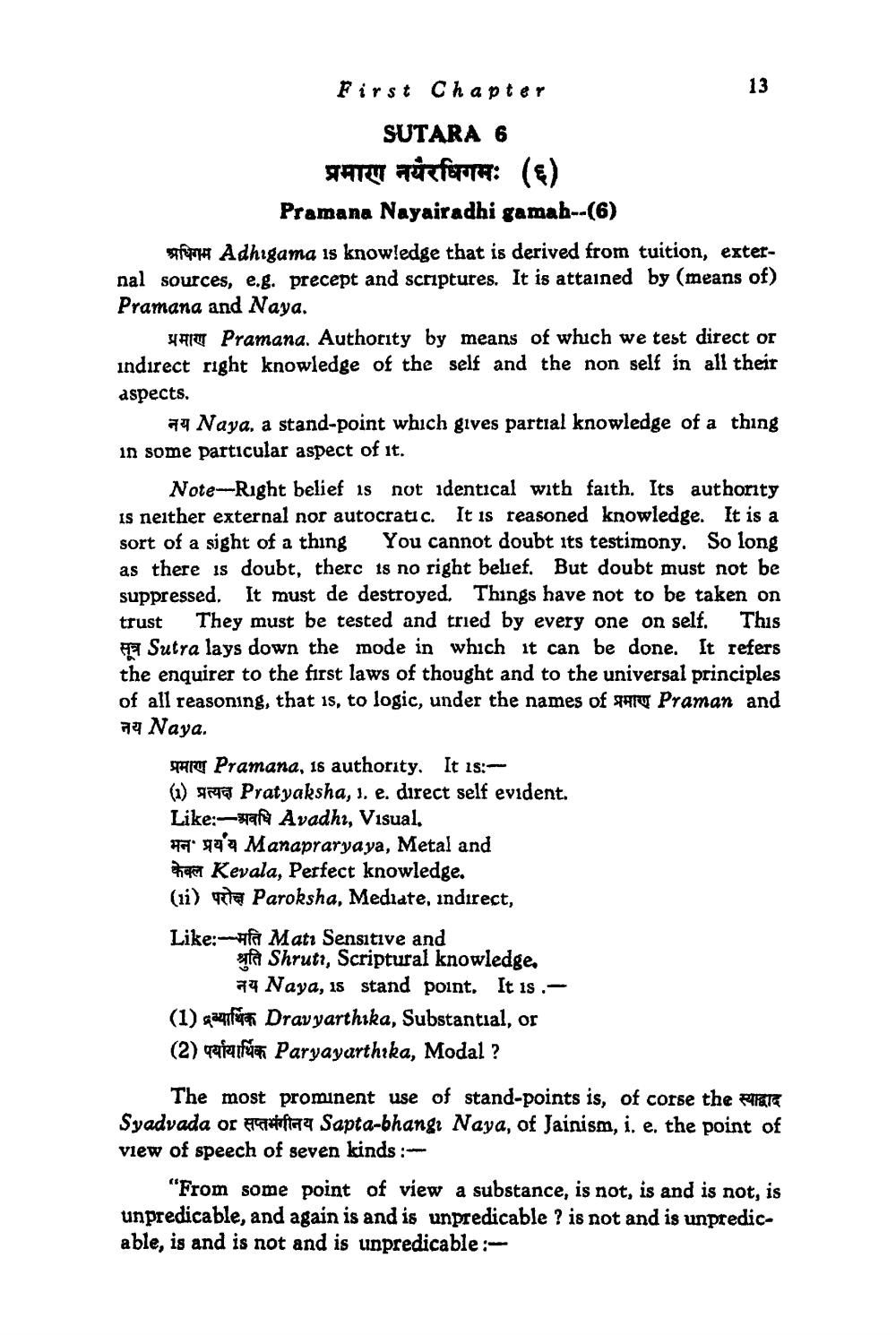________________
First Chapter
SUTARA 6 TATUT FÜRfspra: (€)
Pramana Nayairadhi gamab--(6) w Adhigama is knowledge that is derived from tuition, external sources, e.g. precept and scriptures. It is attained by (means of) Pramana and Naya.
YAITU Pramana. Authority by means of which we test direct or indirect right knowledge of the self and the non self in all their aspects.
74 Naya. a stand-point which gives partial knowledge of a thing in some particular aspect of it.
Note--Right belief is not identical with faith. Its authority is neither external nor autocratic. It is reasoned knowledge. It is a sort of a sight of a thing You cannot doubt its testimony. So long as there is doubt, there is no right belief. But doubt must not be suppressed. It must de destroyed. Things have not to be taken on trust They must be tested and tried by every one on self. This FF Sutra lays down the mode in which it can be done. It refers the enquirer to the first laws of thought and to the universal principles of all reasoning, that is, to logic, under the names of TV Praman and a4 Naya.
Star Pramana, 18 authority. It is: (W) a Pratyaksha, 1. e. direct self evident. Like:- Avadhi, Visual. # 999 Manapraryaya, Metal and Free Kevala, Perfect knowledge. (ii) pe Paroksha, Mediate, indirect,
Like: Mata Sensitive and
sa Shruti, Scriptural knowledge,
79 Naya, is stand point. It is .(1) gamlára Dravyarthika, Substantial, or (2) gafanha Paryayarthika, Modal ?
The most prominent use of stand-points is, of corse the fire Syadvada or diftara Sapta-bhangi Naya, of Jainism, i. e. the point of view of speech of seven kinds :
"From some point of view a substance, is not, is and is not, is unpredicable, and again is and is unpredicable ? is not and is unpredicable, is and is not and is unpredicable:




